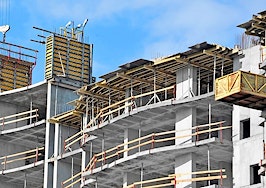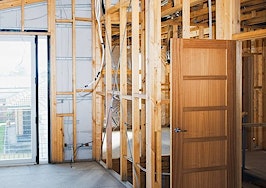- Last week the Federal Housing Administration (FHA) announced a multifamily insurance rate reduction to incentivize the development and renovation of quality affordable housing.
- The decision comes in response to housing industry reports criticizing the lack of affordable units combined with rising rent prices across the country.
- The rate reductions are expected to spur the rehabilitation of 12,000 units nationally and benefit 40,000 families over the next three years.
Responding to recent housing industry analyst reports that criticized a decline in the construction of affordable, quality rental housing across the country, the Federal Housing Administration (FHA) last week announced a multifamily insurance rate reduction.
This may be the incentive real estate developers need to renovate and build housing that more low- and moderate-income households can afford.
[Tweet “The FHA last week announced a multifamily insurance rate reduction.”]
Department of Housing and Urban Development (HUD) Secretary Julián Castro announced the plan on Jan. 29 during a visit to an affordable housing complex in Columbus, Ohio.
According to the FHA, most of the nation’s affordable housing stock was built prior to 1980, and each year, the U.S. loses more than 300,000 affordable housing units. At the same time, rents have steadily risen since 2000, while the number of renters who need affordable housing has increased.
Upping the incentives for renovations and new units
The FHA’s premium reductions are intended to help developers renovate existing housing and free up the capital needed to build more units. The rate reductions will take effect April 1 and directly impact FHA’s Multifamily Housing Programs and properties that house low- and moderate-income families, as well as developments installing energy-efficient systems or building within federal energy guidelines.
[Tweet “The FHA’s premium reductions are intended to help developers renovate existing housing.”]
“Families across the country are struggling through an affordable housing crisis,” Castro said. “By reducing our rates, this administration is taking a significant step to encourage the preservation and development of affordable and energy efficient housing in communities large and small. This way, hard-working families won’t have to make the false choice between quality or affordable housing.”
For housing classified as “broadly affordable,” most of which is under Section 8 contract and/or covered by Low Income Housing Tax Credit (LIHTC) affordability requirements, annual rates will be lowered to 25 basis points, a reduction of 20 or 25 basis points from current rates.
For “affordable” mixed-income properties — or those units set aside based on affordability including partial LIHTC, partial section 8, inclusionary zoning or other local affordability requirements — the FHA is lowering annual rates to 35 basis points, a reduction of 10 to 35 basis points.
For energy-efficient properties, or those committed to industry-recognized green building standards, the FHA is lowering annual rates to 25 basis points, a reduction of 20 to 45 basis points.
To ensure that the broadly affordable and energy-efficient properties benefit directly from the lower rates, FHA will limit the fees that can be charged on these loans. Multifamily insurance rates for market-rate properties that are not energy efficient will remain unchanged.
Uphill battle amid a ‘strained fiscal climate’
FHA is also reducing upfront premiums to support its affordable housing and energy efficiency goals and to streamline the premium structure.
Upfront insurance rates will be set at 25 basis points for broadly affordable and energy-efficient properties, and 35 basis points for mixed-income properties.
Upfront premiums for market rate properties that are not energy-efficient will remain unchanged.
According to the FHA, the rate reductions are expected to spur the rehabilitation of an additional 12,000 units of affordable housing per year nationally, and nearly 40,000 families will benefit from higher-quality and affordable housing over the next three years.
Castro’s announcement came on the heels of a Harvard University Joint Center for Housing Studies (JCHS) report, “America’s Rental Housing,” which concluded that nearly half of the new rental units constructed in 2013 catered to the upper end of the income spectrum.
In a follow-up post on the JCHS Housing Perspectives blog, Irene Lew, a research assistant at the center, suggested that federal and local government intervention was needed to offer publicly owned land at reduced or not cost to developers, particularly in pricey metro areas like Washington, D.C.
However, Lew also noted that Congressional appropriations for government programs like the HOME Investment Partnerships Program, or HOME, lag behind levels set aside for such programs a decade ago.
“Indeed, the strained fiscal climate may continue limit the availability of subsidies that make it economically feasible for both for-profit and nonprofit developers to build affordable rental housing,” Lew concluded.





